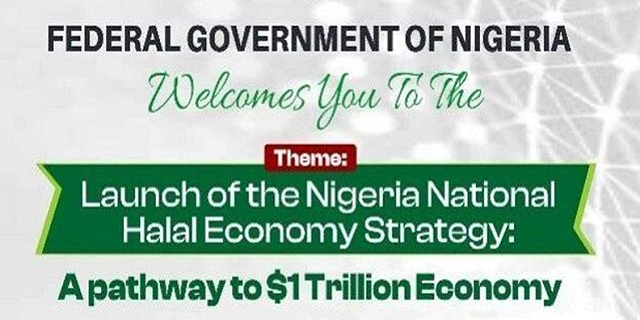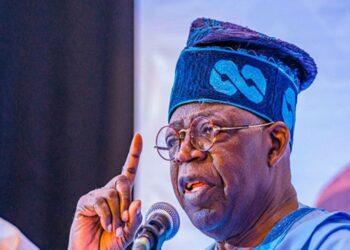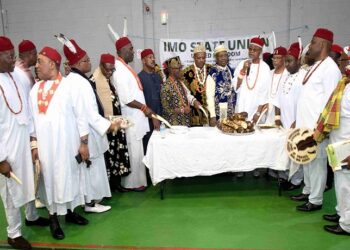By Onwudiwe I. Onwudiwe
In the theatre of nations, identity shifts quietly. Empires have changed their faiths not through conquest, but through policy. The warning lights are now flickering for Nigeria
Across history, once plural societies have drifted from open secularism into single-faith dominance by bureaucratic design. Turkey, once a proud secular republic under Atatürk, is today being reshaped through incremental constitutional and economic Islamisation.
Lebanon, founded upon a delicate Christian–Muslim power balance, has seen its Christian influence eroded by decades of demographic and policy drift. In North Africa, the remnants of early Christian civilisation vanished as rulers re-wrote civic law to reflect religious codes.
Even regions of the Middle East that once hosted vibrant minorities now legislate exclusively through Sharia, their plural pasts erased by the fine print of “development strategies.”
Nigeria must read this pattern with great care. When a government begins to infuse the language of one faith into its national economic architecture, history calls it the first quiet stage of identity migration.
The recent announcement of a Nigeria National Halal Economy Strategy may sound like an economic innovation. Yet, in a fragile federation, it resonates as a rebranding of the Republic itself. “Halal,” meaning permissible under Islamic law, is not a neutral term.
Once adopted as a national economic framework, it inevitably shapes regulation, finance, trade certification, and market access. Step by step, commercial necessity becomes moral conformity. That is how nations slip from neutrality into alignment.
This is not theory, but the lived experience of nations that once called themselves secular. Each began with economic logic — to attract capital, to reach new markets — and ended with constitutional imbalance. The transformation arrived quietly, without a single gunshot, through official paperwork that redefined what was “national.”
Borno State offers a sobering mirror. Two decades ago, it was a zone of interfaith coexistence. Then came extremist ideology, the claim that modern education was haram. From that claim grew an insurgency that turned cities into graveyards.
Today, the same region produces Nigeria’s Vice President, now leading a federal agenda that places “Halal” at the centre of national economic policy. Symbolically, the circle is closing. A word that once justified terror is being baptised as prosperity.
No one disputes the right of Muslim entrepreneurs to pursue Halal markets. The danger lies in a national endorsement that blurs faith with federal authority. Under a Muslim–Muslim presidency, with Christian communities still burying victims of targeted violence, the optics are combustible. The government is trading in symbolism too volatile for a country this divided.
If the intention is trade expansion, let it remain an export window managed by the private sector. Let there be equal federal energy for a National Religious Freedom and Protection Initiative. Let the state reaffirm that Nigeria’s economic identity rests upon neutrality, not theology. Otherwise, what begins as policy could mature into creed, and creed into crisis.
Leadership must learn from the ruins of nations that ignored early warnings. When governance marries religion, it births suspicion. When it makes religion its economy, it invites disintegration. The path now being charted is not simply economic; it is civilisational. Once a civilisation crosses that line, returning to balance is never easy.
The Federal Government still has a window of wisdom. It can rename the project as a Halal Export Development Programme, keeping it commercial, not doctrinal. It should quote Section Ten of the Constitution publicly at its launch, reaffirming that Nigeria shall not adopt any religion as State policy. Economic desperation must not rewrite the moral charter of the Republic.
History is patient, but unforgiving. It records not intentions, but outcomes. Nigeria’s leaders must decide now whether they wish to be remembered as the architects of inclusive prosperity, or as the administration that, in seeking to build a trillion-dollar economy, spent the last moral currency of national unity.
The Lessons of History
1. Turkey — From Republic to Re-Islamisation
Founded by Mustafa Kemal Atatürk in 1923 as a strictly secular republic, Turkey banned religious symbols in public institutions and based its laws on civil codes. Over the decades, successive governments reintroduced Islamic culture into education, banking, and governance. By the early twenty-first century, the Justice and Development Party (AKP) under President Erdoğan had effectively fused Islam with state identity, controlling media, curriculum, and finance under moral pretexts. The “Halal economy” became a state-backed export model, and secularism became ceremonial.
2. Lebanon — The Quiet Collapse of Balance
Lebanon’s 1943 National Pact established parity between Christians and Muslims. Yet demographic shifts and regional pressures tipped the scales. Public institutions became dominated by sectarian interests, and state neutrality eroded. Christian political strength declined not through war alone, but through policies that privileged one bloc’s ideology in social and economic programmes. What began as coexistence now struggles as confessional survival.
3. Egypt and North Africa — The Disappearance of Early Christianity
From the third to the seventh centuries, Egypt and North Africa were bastions of Christian theology. Alexandria was once the intellectual capital of Christendom. Through centuries of Islamic expansion, taxation systems such as jizya, and administrative reform, the region’s civic and economic life gradually aligned with Islamic governance. Conversion became not compulsory but convenient, as economic opportunity flowed to those within the dominant code. The process was administrative, not apocalyptic — a quiet transformation in plain sight.
4. Sudan — Constitutional Drift
Sudan’s early constitutions mirrored secular independence charters. Gradually, military and ideological pressures replaced civil law with Sharia. The economy followed. By the 1980s, public banking and licensing were conditioned upon religious compliance. The southern Christian regions revolted, and the result was partition. Policy, not prayer, drew that map.
The Crossroads Before Nigeria
Each of these nations began her transformation with small administrative adjustments — the rebranding of commerce, the creation of faith-aligned financial systems, the use of religious vocabulary in national planning. None declared the change overnight, but all reached the same destination: the disappearance of neutrality.
Nigeria now stands at a similar crossroads. The proposed National Halal Economy Strategy may appear harmless, but if adopted as a national doctrine rather than a voluntary trade policy, it could become the quiet portal through which a plural republic drifts into confessional governance.
In the end, one cannot ignore the symbolism. The architect of the Halal agenda once governed the same Borno where the creed of haram first drew blood. It was there that ideology met gunpowder, and innocence met its grave. Now, from that same soil rises a national policy wrapped in the vocabulary of faith and the fragrance of commerce.
The hand may appear as the hand of Esau, clothed in the garment of economic strategy, yet the voice is the voice of Jacob, speaking in the familiar cadence of creed. Nigeria must discern swiftly between the hand that builds and the voice that binds, lest the republic awaken to find that in chasing prosperity, it has bartered away its soul. History has already written the warning. Whether we read it or repeat it will decide what becomes of the Nigerian Union.










